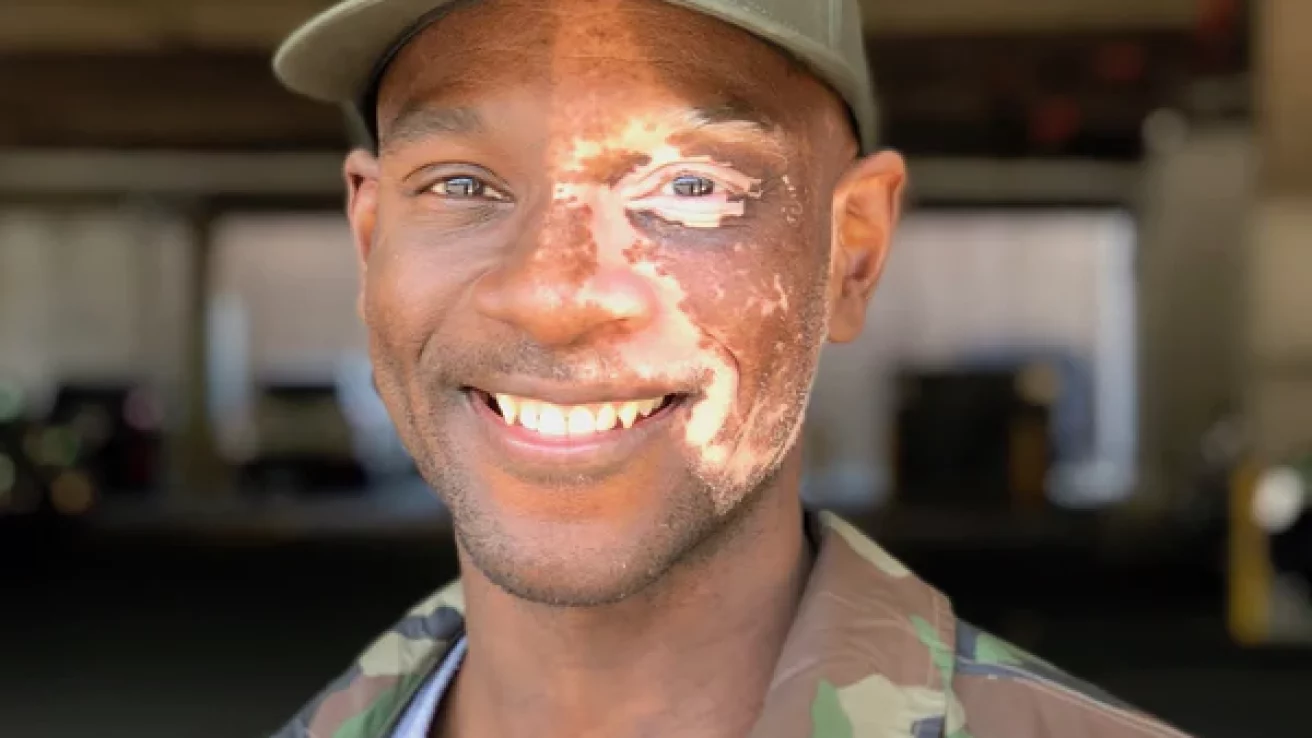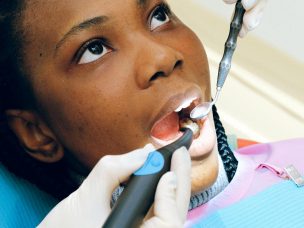James Mcleod is a patient advocate who has vitiligo. In this interview, he tells us what it’s like to adjust to managing vitiligo, and he shares his advice for other people living with the condition.
Describe how you have to adjust to managing Vitiligo.
James Mcleod: I knew I had a visual difference and there were a couple of ways I had to
adjust to it. I’ll give you a couple of different points. It’s one of the things, where the world looks at you as someone who has this deformity or who has this disability or someone who might have a disfigured face because a lot of people don’t know what vitiligo is, so when the world looks at you, they look at you as a disadvantage so it’s all about your mindset. Either you play victim or you can change the narrative of your circumstance and your situation and don’t allow those things to find you. I said at the beginning there’s a lot of inside work because the world will place these judgments, these assumptions; the world will come up to you and ask you what’s going on constantly, what happened to your face, especially back then when it wasn’t really like the norm. That can be mind-blowing, that’s how I really am, right, so it was a lot of work for me. I had to take it even though my mom gave me almost all the tools I need but she didn’t really give me all the tools I needed growing up. I had a lot of trust issues because my mama tell me one thing but soon as I stepped out the doors my mom wasn’t holding my hand, society had tell me another thing so I’ll go back to my mom and say hey Mom are you kidding me why are you not telling me the truth? But my mom, as a parent, reassured me. She said son you’re all right, nothing’s wrong with you, so I realized that it was a lot of work with myself; it had to start with me, not my mom. I started to look in the mirror at the age of seven and I started to say like opposite things what the world would say to me not even knowing that it was a form of like affirmations and mantras and just really building my self-esteem up on my own, and once I was allowed to do that, I was able to begin to be honest with myself to have this sense of urgency like there’s nothing wrong with me because, as you start to view the rest of the world, you start to see everybody else have similarities, or the world has their own problems, their own issues. And I started saying this is not ignorance, they just don’t understand. So then I started doing more of the inside work and doing the work at this early age even though I had my trials and tribulations. I had my ups and downs when I went into the streets to be accepted but the best thing that ever happened to me and how I coped was falling in love with DJing at the age of 11. I decided to call my DJ name DJ Half, so I kind of brought that awareness to me. I was like the coolest thing ever being 11 years old knowing how to DJ and play music, and then my nickname was DJ half or half man half amazing. People were accepting of that especially in my community like yo, you the man, boom boom boom. That was like the coolest thing ever but then again I dealt with a lot of it even though that was cool as it looked as it appears on the outside but on the inside, I still had to work on myself and how I did that was by looking in the mirror every single day dealing with my issues instead of just bottling it up and holding them all in. I’m fortunate enough that I had the mother that I had. Single-parent household, my mom played my dad too, as my dad was absent from my life. He had a drug addiction; he had a different story from me. He thought I was going to have a chip on my shoulder; he thought I was going to be a serial killer just from all the frustration imagining as a young boy every day someone actually staring at you or actually asking you what happened to your face. That’s a lot of trauma for a young child. Imagine growing up as adult, not pushing past and not getting professional help, right, but one thing, you know, and I think that I went through all these lessons for a reason, because they turned into my blessings and it was one of those things like if I didn’t go through, if I ain’t never do life the way I did I don’t think I can actually be fully healed to where I’m at to have this conversation with you. A lot of people’s stories are different; a lot of people go through certain things. There are people who cope differently. Some people abuse alcohol on drugs but never really push past what they had to go through because all you’re doing is going and still doing that same loop but all you’re doing is planting that seed and eventually you keep playing as it eventually grows. But it’s gonna be hard to break those patterns when it’s time to break those patterns, so I know you have to face everything head on and most people don’t want to face things head on so that’s what I did. I started looking in the mirror and I developed that confidence and started to do the work and put challenges in front of me every single day, not this version that my dad thought I was gonna be and this version of who I was going to be now because I wish someone would have told me I was brilliant, I was a genius, I was more than just being unique a wonderful kind. Anybody knows what I’m saying; it’s nothing special about me. The thing is I showed up and I was able to, right, I don’t know if you’re aware I was able to, you know, write two children’s books: The Boy behind me, wow, and my daily superpowers, so you know it’s one of the things that I do this at a high level as far as just teaching people about self-love and hope and not giving up on yourself but I do show, you know, I do talk about inclusion. I always wanted to be accepted, so I talk about diversity and overcoming adversity but, you know, pursuing happiness and self-love at its highest level but showing people you can be determined. You can have this resilience in you and this perseverance. You can come back from anything, you know, I worked on myself and a lot of people ask me how I’m doing. I’m saying extraordinary and they don’t know how I got there but you don’t know my backstory, so I got a new book coming out, The Man Behind the Face, where I’m giving all these tools and talking a little bit about my upbringing so people can get a better understanding of who I am.
Learn more about James McLeod and his daily initiatives here https://thatvitiligoguy.com/









